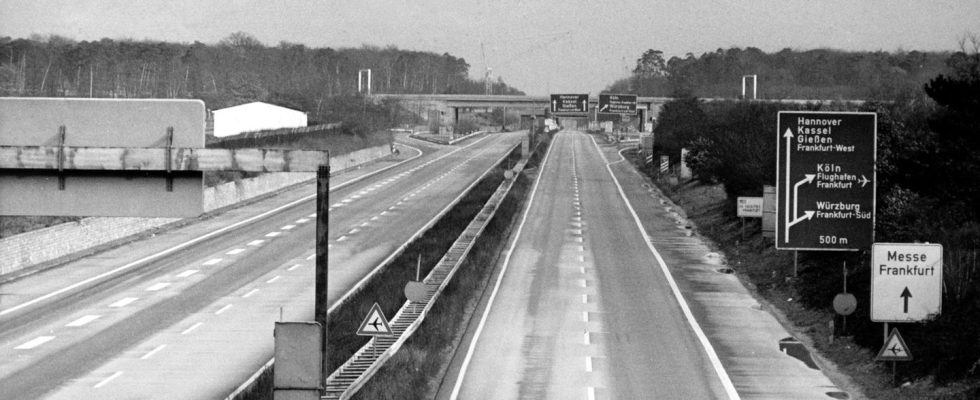Opinion
Car-free days
Germany has already survived driving bans – and will do so again
This image of an empty highway does not come from the nightmares of Federal Transport Minister Volker Wissing (FDP), but shows a car-free Sunday during the oil crisis in 1973.
Volker Wissing stirs up fear of impending driving bans. Car country Germany has already survived car-free days. The Federal Minister of Transport just wants to distract from his inaction.
The dignity of the car is inviolable. The Federal Transport Minister could do that Volker Wissing (FDP) as a tattoo.
The German climate goals are – oh surprise – bindingly regulated in the Climate Protection Act. It envisages that greenhouse gas emissions will be reduced by 65 percent by 2030 compared to 1990. Permissible annual emission levels have been set for individual sectors such as industry, the energy sector or buildings, and of course also for the transport sector.
But Wissing is pushing for a reform of the climate protection law. Because if the others save enough CO2 and achieve the overall goal, the transport sector would no longer have to reduce. So instead of doing his job and at least making suggestions on how emissions can be reduced in his area of responsibility, Wissing is now painting the supposed horror scenario of “driving bans” on the wall. He knows how to get the Germans. Or he thinks he knows.
The minister is probably too young to remember, but: November 25, 1973 was the first of four car-free Sundays during the oil crisis, in which the entire Federal Republic was supposed to save energy. In addition, the Energy Security Act at the time stipulated a six-month speed limit of 100 kilometers per hour on motorways and 80 on country roads. The stuff Wissing’s nightmares are made of.
Discussion about driving bans: Sometimes you can get by without a car
But perhaps Wissing could ask older people? He would then find that they had survived the temporary car waiver, even without any damage. Car-free weekends can be planned well in advance. Then you just stay at home. Or ride a bike, bus, train or train if you urgently need to get out and about. Of course, the challenge in rural areas is much greater than in big cities – also because Wissing sees himself first and foremost as a car minister and, in the tradition of his predecessors, neglects public transport.
Green cities
Mobility mix – this is what the transport of the future in cities will look like
In any case, you can sometimes get by without a car, even permanently. And even if this is difficult for FDP politicians to imagine: not everyone can afford a car. Some even consciously avoid it. Please? Yes, quite right. Just try it out! Having a new experience every now and then never hurt anyone. Perhaps then Federal Transport Minister Wissing would also realize that the dignity of the car is very much in jeopardy.



